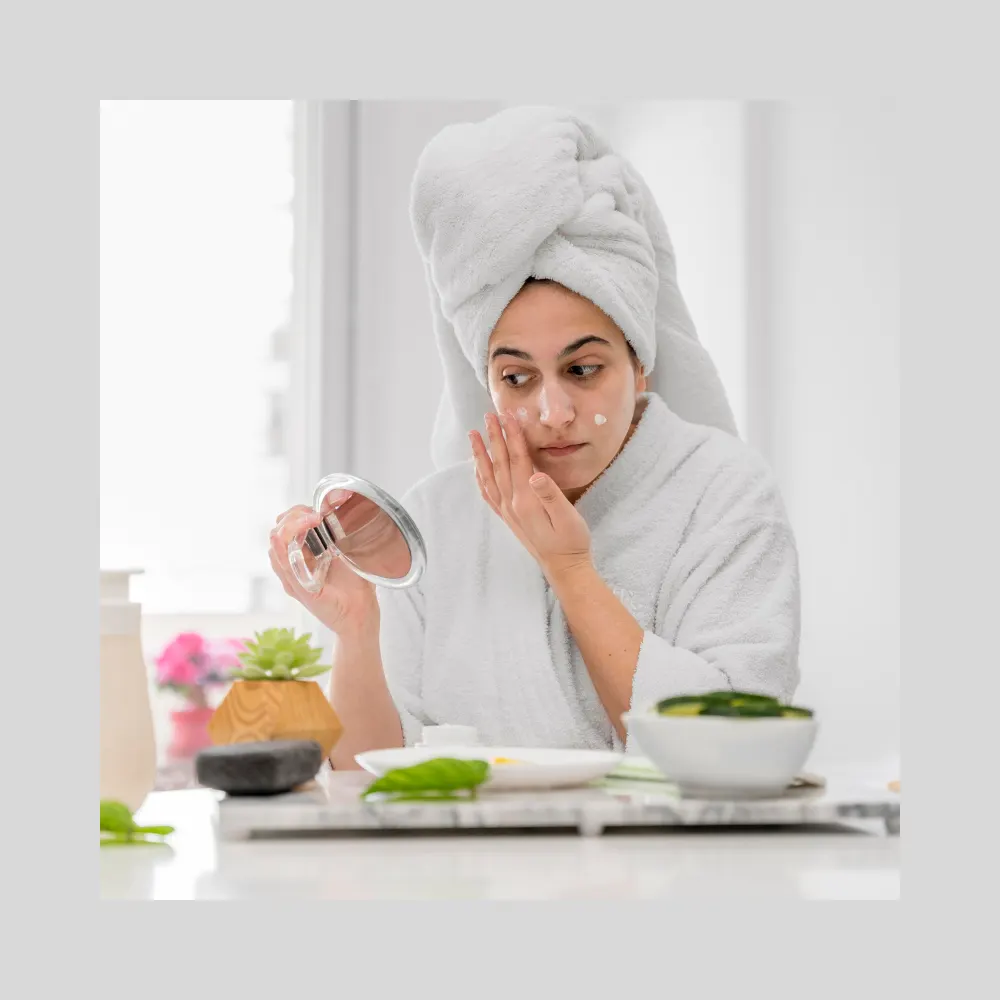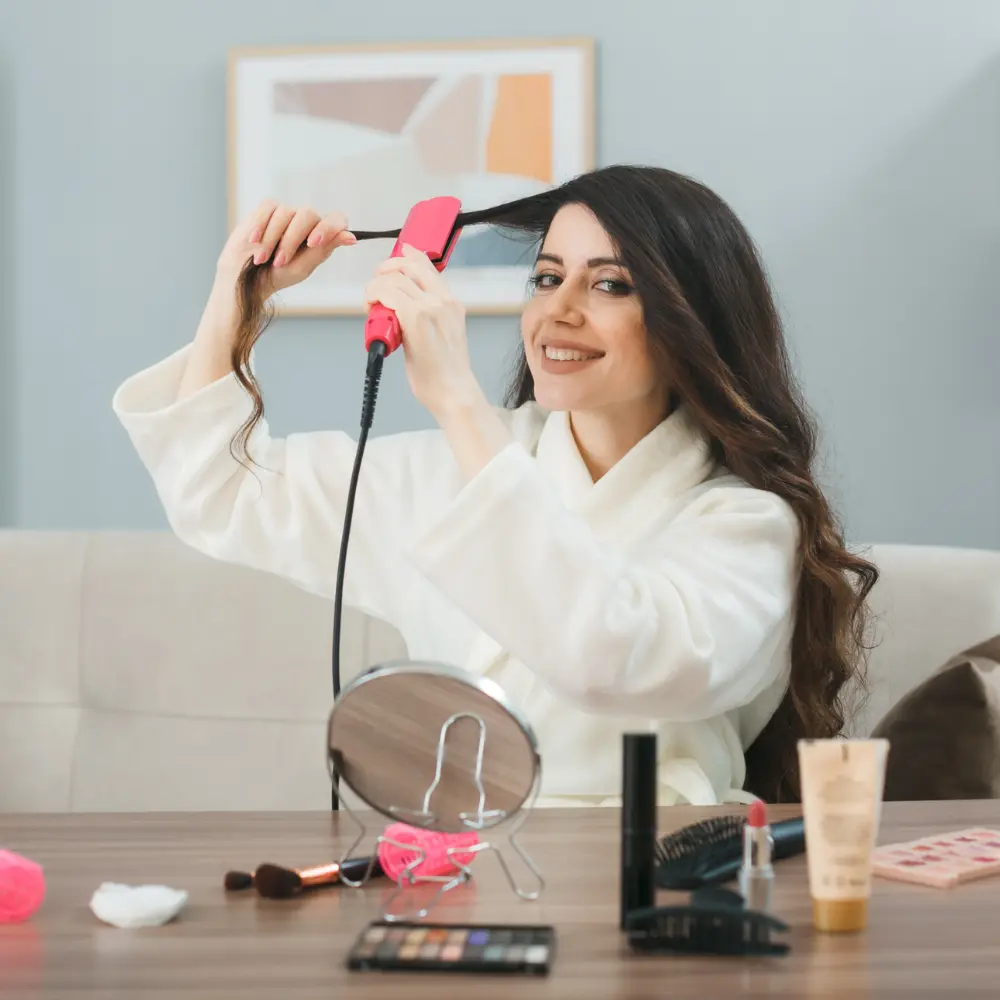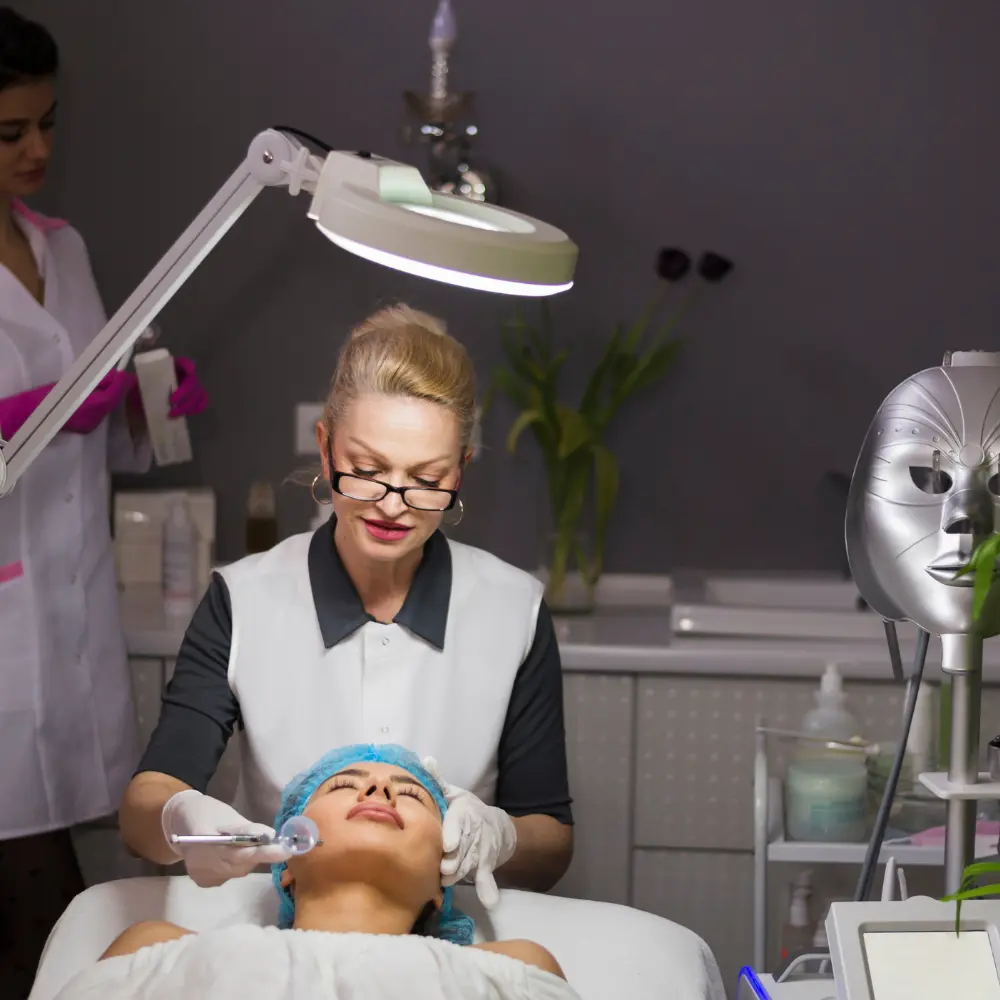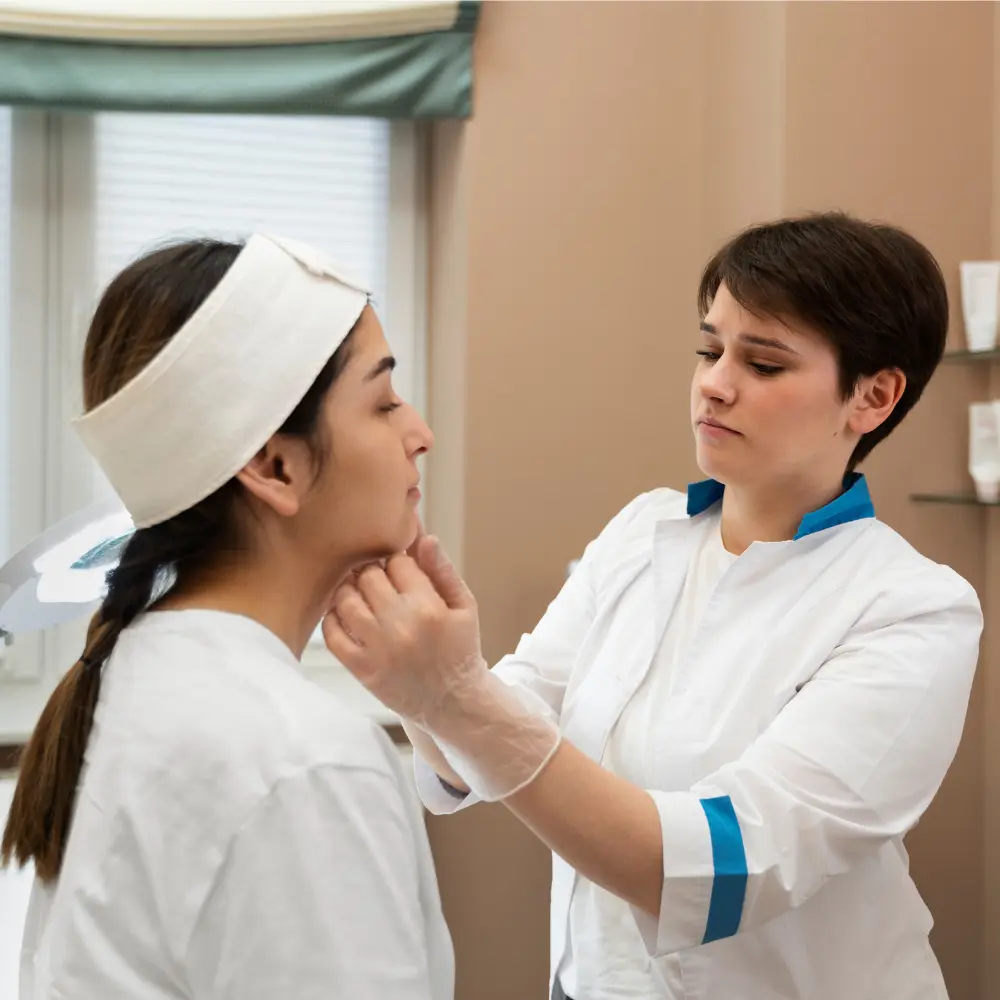Worried about Acne?
Try These 7 Proven Steps to Clear Skin
7 Proven Steps to Clearer Skin:
The Ultimate Guide to Stop Acne Breakouts
Dealing with acne can be really tough, but the awesome part is that you can take control of your skin. This guide offers 7 proven steps to clearer skin, combining expert tips to help you avoid breakouts and achieve the clear, healthy skin you want. Struggling with acne? Follow these straightforward strategies—from gentle skincare routines to stress management—to keep breakouts away for good. Your path to healthier skin begins now.
Quick Navigation: Find What You Need Fast
- Step 1: Build a Gentle, Acne-Fighting Skincare Routine for Clearer Skin
- Step 2: Understand Your Skin Type
- Step 3: Watch Your Diet for Clearer Skin
- Step 4: Manage Stress to Prevent Breakouts
- Step 5: Be Mindful of Your Makeup and Accessories
- Step 6: Stay Consistent with Treatments
- Step 7: Seek Professional Help to Achieve Clearer Skin
- Final Thoughts
Step 1: Build a Gentle, Acne-Fighting Skincare Routine for Clearer Skin

A gentle and consistent skincare routine can effectively manage acne while protecting your skin.
- Cleanse Gently: Use a sulphate-free cleanser with ingredients like salicylic acid to remove dirt and oil without over-drying.
- Use Acne Treatments: Apply targeted products with active ingredients like benzoyl peroxide, salicylic acid, or retinoids to treat breakouts.
- Moisturise Daily: Even acne-prone skin needs hydration; choose non-comedogenic, oil-free moisturisers.
- Apply Sunscreen: Protect your skin from UV damage with a non-comedogenic SPF 30+ sunscreen.
- Incorporate Optional Steps: Use alcohol-free toners, exfoliate weekly with chemical exfoliants, and apply spot treatments for active pimples.
- Avoid Overloading Products: Stick to a simple routine and avoid mixing strong active ingredients.
- Adopt Healthy Habits: Avoid touching your face, change pillowcases weekly, and clean phone screens regularly.
- Be Consistent: Results take time—stick with your routine for at least 6–12 weeks.
For severe acne, consult a dermatologist for tailored treatments. A balanced routine and patience are key to achieving clear, healthy skin.
Step 2: Understand Your Skin Type
Knowing your skin type is essential for preventing acne and maintaining healthy skin. Skin types include oily, dry, combination, sensitive, and normal, each requiring tailored care:
- Oily Skin: Opt for oil-free, non-comedogenic products to control sebum.
- Dry Skin: Focus on hydration with gentle, moisturising products.
- Combination Skin: Balance care with lightweight products for oily areas and richer ones for dry areas.
- Sensitive Skin: Use soothing, fragrance-free products to avoid irritation.
- Normal Skin: Maintain a simple routine with balanced products.
Identify your skin type using methods like the bare-face test or blotting paper test. Customise your skincare routine accordingly with cleansers, moisturisers, exfoliants, and SPF that suit your skin type. Reassess periodically as your skin can change over time. With the right approach, you can effectively prevent acne and achieve clearer, healthier skin.

Step 3: Watch Your Diet for Clearer Skin

Your diet significantly affects your skin’s health and can help prevent acne. Eating nutrient-rich foods and avoiding triggers can promote a clearer complexion:
- Foods to Include:
- Antioxidants: Berries, spinach, nuts.
- Omega-3s: Fatty fish, chia seeds, walnuts.
- Zinc: Pumpkin seeds, lentils, shellfish.
- Vitamin A: Sweet potatoes, carrots, spinach.
- Probiotics: Yogurt, kimchi, kombucha.
- Hydration: Water and water-rich foods like cucumber.
- Foods to Avoid or Limit:
- High-glycaemic foods (white bread, sugary snacks).
- Dairy products (milk, cheese).
- Processed and fried foods (chips, fast food).
- Excess sugar and milk chocolate.
Balance your diet with whole, unprocessed foods and track any potential food sensitivities. Combine healthy eating with proper skincare, hydration, and stress management for long-term, clearer skin.
Step 4: Manage Stress to Prevent Breakouts
Stress can significantly impact your skin, leading to acne by increasing cortisol levels, oil production, and inflammation. Here’s how to manage stress for healthier, clearer skin:
- Relaxation Techniques: Practice meditation, deep breathing, or yoga.
- Regular Exercise: Boost mood and circulation with daily physical activity.
- Quality Sleep: Aim for 7–9 hours of rest to lower cortisol levels.
- Healthy Diet: Eat stress-reducing foods like leafy greens and nuts; stay hydrated.
- Skincare Routine: Use gentle, consistent products and avoid over-cleansing.
- Stay Organised: Manage tasks with to-do lists and time management.
- Avoid Habits: Minimise face-touching and don’t skip skincare.
Managing stress is key to preventing acne and improving skin health. Combining relaxation techniques, exercise, proper sleep, a balanced diet, and a consistent skincare routine can minimise stress-related breakouts and promote long-term skin clarity.

Step 5: Be Mindful of Your Makeup and Accessories

Your makeup and accessories can affect your skin health. Improper use of makeup and certain accessories can clog pores, irritate the skin, and contribute to acne breakouts. Follow these tips to prevent breakouts:
- Choose the Right Makeup: Use non-comedogenic, lightweight, and hypoallergenic products. Check expiry dates and avoid harsh ingredients.
- Clean Application Practices: Wash hands before applying makeup, clean tools regularly, and avoid sharing products.
- Remove Makeup Properly: Always remove makeup before bed, double cleanse to remove residue, and be gentle around the eyes.
- Maintain Accessory Hygiene: Wash hats, headbands, and jewellery often. Clean glasses daily to prevent bacteria buildup.
- Limit Makeup During Breakouts: Use minimal, breathable products and focus on skincare.
- Patch Test New Products: Test new makeup for allergic reactions before full use.
- General Hygiene: Wash pillowcases weekly and avoid touching your face unnecessarily.
With mindful practices and hygiene, you can keep your skin clear and healthy while enjoying makeup and accessories.
Step 6: Stay Consistent with Treatments
Consistency is vital for achieving and maintaining clear skin. Staying consistent with your treatments ensures that your skin gets the regular care it needs to heal and thrive. Here’s how to stay on track:
- Understand the Process: Skin renews itself every 28 days, so treatments need time (6–12 weeks) to show results.
- Simplify Your Routine: Focus on essentials—cleanser, treatment, moisturiser, and sunscreen—twice daily.
- Stick with Products: Avoid switching treatments too quickly to let them work effectively.
- Track Progress: Monitor your skin weekly and stay patient, as visible changes take time.
- Address Challenges: Keep products visible, set reminders, and avoid overuse to maintain consistency.
- Support with Healthy Habits: Eat a balanced diet, stay hydrated, and manage stress to enhance results.
- Seek Professional Help: Consult a dermatologist if treatments aren’t working after several months.
Consistency builds long-term results, helping you achieve clearer, healthier skin. By sticking to a simple, tailored routine, giving treatments time to work, and addressing challenges with patience, you can achieve long-term improvements in your skin’s health.

Step 7: Seek Professional Help to Achieve Clearer Skin

Professional help is essential when acne persists, becomes severe, or impacts your emotional well-being. Here’s what to know:
- When to Seek Help: If over-the-counter treatments don’t work after 6–12 weeks, or you face severe acne, sudden breakouts, or scarring, consult a dermatologist.
- Benefits of Professional Care: Dermatologists provide personalised diagnoses, prescription medications, advanced treatments (like chemical peels or laser therapy), and a holistic approach to address triggers like diet or stress.
- Common Treatments: These include topical medications (retinoids, azelaic acid), oral treatments (antibiotics, isotretinoin), and in-office procedures (extractions, blue light therapy).
- Prepare for Appointments: Keep a skin journal, list current products, and share your medical history to help your dermatologist customise your care.
- Patience is Key: Professional treatments take time—often weeks or months—to show results, so consistency is vital.
Seeking expert advice ensures effective, long-term solutions for clear, healthy skin.
Final Thoughts

Final Thoughts
Acne is not just a cosmetic concern—it can affect your self-esteem and emotional well-being. By following these
7 proven steps to clearer skin, you can improve your skin’s health and regain confidence. Building a routine that includes the right products, habits, and professional support makes a significant difference. Be patient and stay committed to your skincare regimen, as results often take time. Whether you’re managing mild breakouts or severe acne, understanding your skin and following these strategies will help you achieve clearer, healthier skin in the long run.

